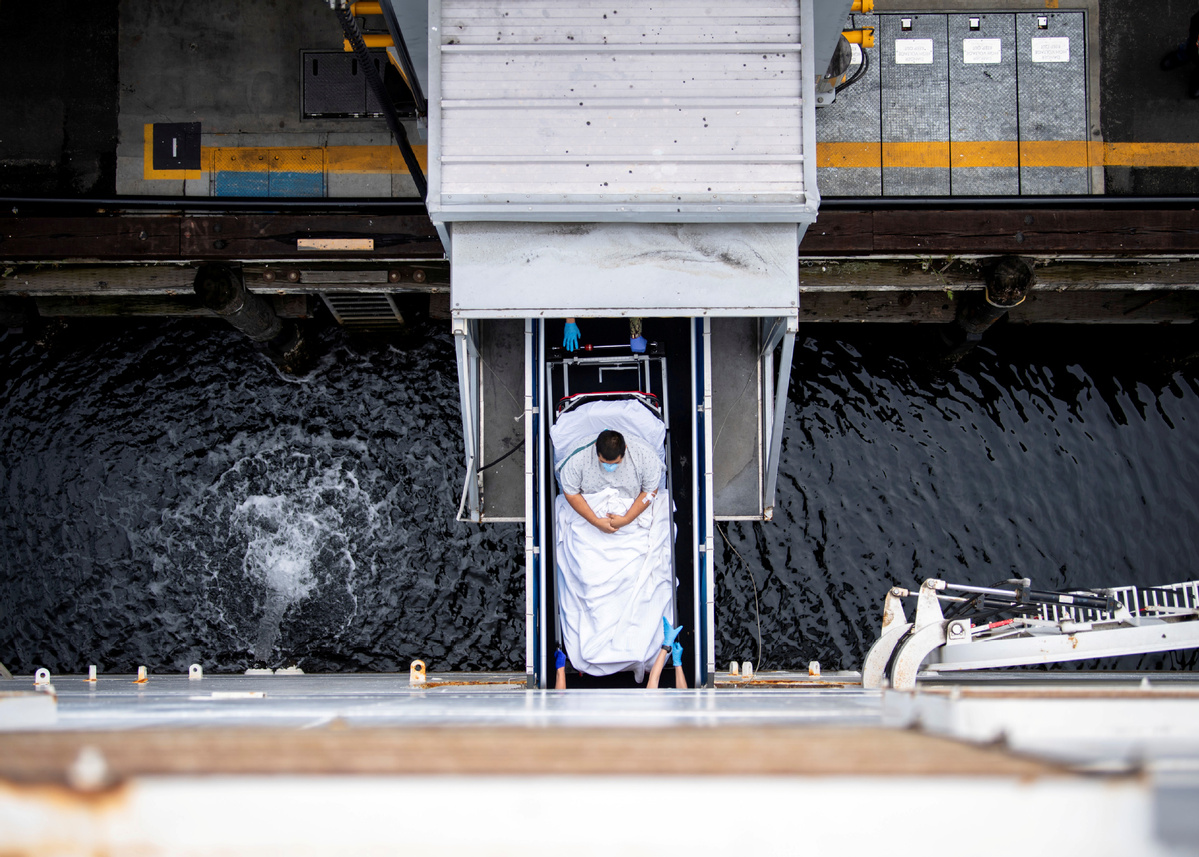West Coast states make pact to fight pandemic
By CHANG JUN in San Francisco | China Daily Global | Updated: 2020-04-14 11:59

Three US states on the West Coast — California, Oregon and Washington —announced on Monday that they will battle COVID-19 and revitalize their economies as a team, with a shared vision guided by science.
In an agreement signed by California Governor Gavin Newsom, Oregon Governor Kate Brown and Washington Governor Jay Inslee, the West Coast states vowed to act in "close coordination and collaboration" in order to ensure the coronavirus "can never spread wildly in our communities".
Amid speculation over when the United States should "reopen" its economy, as President Donald Trump pushes to send Americans back to work, the three states emphasized that they will put their residents' health first and use "health outcomes and science, not politics" to guide decisions to restart public life and business.
Although each state has its own plan, the West Coast will act within a framework that enables the three states to have "an outsized stake in controlling and ultimately defeating COVID-19" for the nation, being home to 17 percent of the American population and a gateway to the rest of the world.
Compared with New York state, which has become the epicenter of the pandemic, West Coast states recently have seen a flattened coronavirus curve.
As of late Monday, New York state reported 188,694 confirmed coronavirus cases and 9,385 deaths from COVID-19, compared with 21,794 confirmed cases and 651 deaths in California; 10,224 cases and 491 deaths in Washington; and 1,584 cases and 53 deaths in Oregon.
Many believe early adoptions of statewide shelter-in-place actions, rigorous execution of quarantine orders and an aggressive system of testing, tracking and isolating have resulted in the slowdown of the virus' spread in the Pacific Coast states.
Washington state had the first coronavirus case in the nation on Jan 15 after a Seattle man who had returned to the US from Wuhan, China, was admitted to a local hospital.
As the virus continued to spread and claim lives around the world, California on March 19 issued a shelter-in-place order, while Washington and Oregon both followed suit on March 23 to request citizens to "stay home" while shutting down schools and nonessential business.
Instead of sitting and waiting for the much-needed personal protective equipment (PPE), ventilators and testing kits from the federal government, the Golden State took the initiative by using its bulk purchasing power "as a nation-state", according to Governor Gavin Newsom in an interview with MSNBC on Wednesday.
California announced on Thursday that it would spend $1 billion to buy 200 million masks each month from electric-vehicle maker BYD in an effort to boost its stockpile of PPE.
"As a nation-state with a capacity to write a check for hundreds of millions — no, billions of dollars — we are in a position to do something bold and big that could be a catalyst to increase supply," Newsom said. "We want to be there for our fellow governors."
All three West Coast states have lent assistance to hard-hit New York state. On April 6, California flew 400 ventilators to New York, while Oregon and Washington have sent 140 and 400, respectively.
The three governors said any modifications to the current "stay at home orders" must be made based on "our understanding of the total health impacts of COVID-19".
That effort will be guided by data, the states reaffirmed, adding that "we need to see a decline in the rate of spread of the virus before large-scale reopening, and we will be working in coordination to identify the best metrics to guide this".
"Any successful lifting of interventions must include a robust system for testing, tracking and isolating," Inslee tweeted Monday. "The states will work together to share best practices and coordinate a framework to get it done."
A concerted effort will be taken, said the governors, to protect the general public and vulnerable populations, including those in nursing homes and other long-term care facilities, and to mitigate the non-direct COVID-19 health impact, particularly on disadvantaged communities.
























